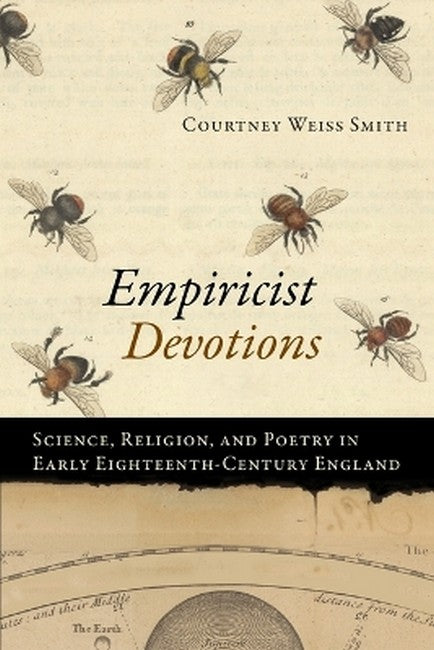Courtney Weiss Smith is Associate Professor of English at Wesleyan University and the co-editor, with Kate Parker, of Eighteenth-Century Poetry and the Rise of the Novel Reconsidered.
Request Academic Copy
Please copy the ISBN for submitting review copy form
Description
Empiricist Devotions is a readable and consistently interesting book.... It is relevant to several different fields of study. Historians of science or philosophy, literary historians, cultural historians, economic historians, and British historians will find it helpful, as will students of eighteenth-century literature and language. -- "ISIS" "Empiricist Devotions gives us a new framework in which to read scientific and literary texts of the eighteenth century." --George E. Haggerty "SEL" [A]dvances an original and important argument, with broad implications for students of this period working in a number of disciplines.... Smith argues that Boyle's devotional reflections on the natural world exemplified a pervasively influential form of "meditative empiricism," and this claim in turn provides the basis for a series of stimulating new readings of natural philosophy, political economy, social contract theory, and georgic poetry from the Restoration to the 1730s. -- "Modern Philology" [A]n important and bold volume... Smith's book is a dense, complex, and conscientiously argued account of a misinterpreted and overlooked aspect of 18th century writing, and should be appreciated for its resolute and vivid polemic against prevailing scholarly categories. -- "Reading Religion" [T]he range of texts and subjects with which the book engages reflects a truly ambitious undertaking and a genuine contribution to eighteenth-century studies. Scholars interestedin the histories of science, religion, philosophy, and literature will find much in Smith's work to admire and upon which to build. -- "Eighteenth Century Fiction" As it probes the complex figural texture of religious, scientific, and literary language of late seventeenth- and early eighteenth-century England, Empiricist Devotions upends standard accounts of all three and demonstrates their deep affinities with one another. This nuanced and original book is a valuable corrective to the secularization thesis, one whose exquisite attention to all that language can be and do restores the possibility of devotion--and with it belief--to the empiricist and skeptical protocols long thought to have ruled them out. --Jayne Elizabeth Lewis, University of California, Irvine, author of Air's Appearance: Literary Atmosphere in British Fiction, 1660-1794 In Empiricist Devotions, Courtney Weiss Smith provides perhaps the most compelling evidence of the benefits of this historicizing approach [to what constitutes "science" in the period].... In her emphasis on the rhetorical strategies deployed by the new scientists in their bid for epistemological authority, Smith draws on more than three decades of work by historians of science exploring the social, political, and cultural factors that shaped the Scientific Revolution. -- "Literature Compass" Smith insightfully and persuasively reorients current discussions about literature and science in the long eighteenth century to account for the crosscurrents between science and religion. The readings are carefully and often brilliantly wrought, producing wonderful local insights within a larger reconsideration of the persistence of the occasional meditation mode in the late seventeenth and early eighteenth centuries. The vast range of materials under Smith's purview--from natural theology and natural philosophy to poetry and economic history, for instance--reflects a sophisticated mind at work. Empiricist Devotions is extremely effective, thoughtful, and persuasive. --Tita Chico, University of Maryland, author of Designing Women: The Dressing Room in Eighteenth-Century English Literature and Culture

